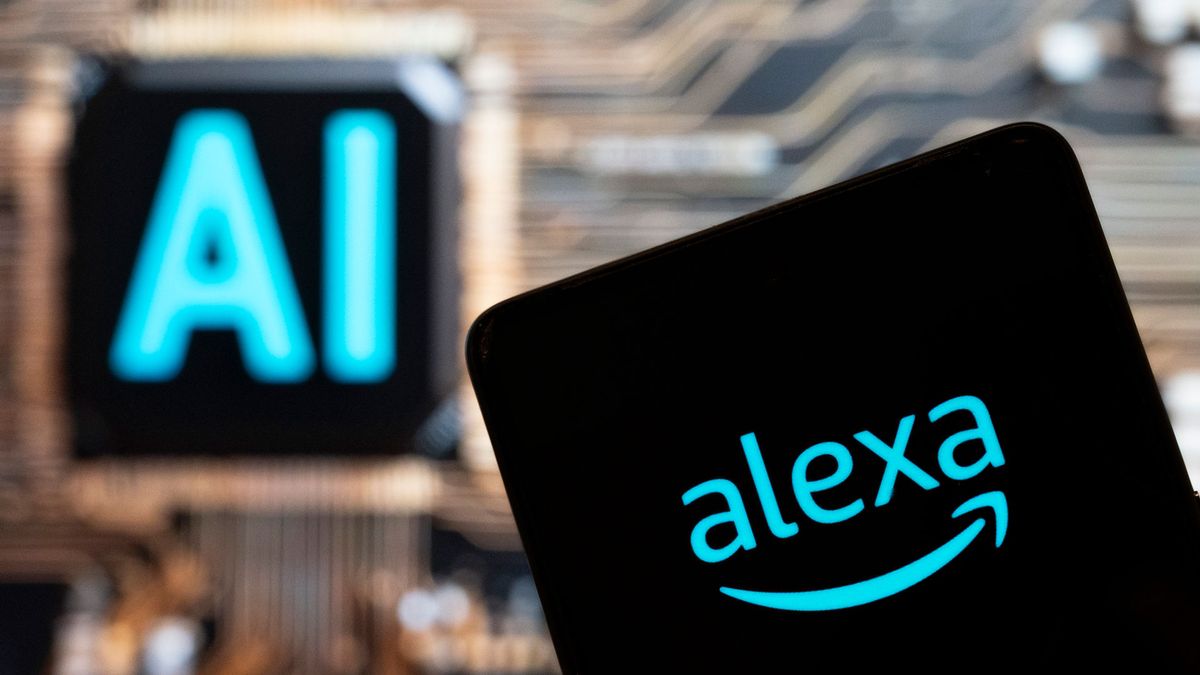Amazon's upcoming Alexa AI brain transplant might make you use it for more than just weather and timers
But will Amazon's Alexa AI revamp come too late to matter?

- Rohit Prasad, Amazon's AGI team team, promised a major Alexa upgrade is on the horizon.
- He spoke with FT on issues forcing a delay in the release, mainly in the realm of hallucinations.
- When the new Alexa arrives the hope is it will be used for more than just basic tasks.
Amazon has spent years extolling Alexa's abilities as a voice assistant, even though it seems most people use it mainly to set timers and check the weather.
Even so, that hasn't stopped Amazon from plotting a far bigger place for Alexa in your life. Amazon wants Alexa to graduate from her relatively simple life of timers and trivia into the AI big leagues as a true personal concierge by leveraging the latest AI models, as Amazon's artificial general intelligence (AGI) leader Rohit Prasad explained to the FT.
Prasad and Amazon want to fully transform Alexa’s brain through a kind of 'transplant' to swap out the old question-answering engine for generative AI models. If all goes according to Amazon’s ambitious plan, Alexa 2.0 will be the digital butler constantly promised, rather than an audio stopwatch and remote control. Prasad admitted it won't be easy, though he is confident Amazon can defeat the obstacles in the way.
If he isn't having hallucinations, Alexa needs to eliminate any hallucinations of its own created by the AI. An assistant that fabricates responses that sound plausible but are completely wrong isn't going to get a lot of use. When you’re asking about the best route to the airport, “plausible but wrong” isn’t going to cut it. Further, Alexa needs to be reliable if people ask it to do more than just play their favorite music. The wrong song is no big deal, but if you request it to book a table for dinner, adjust your lights, and double-check your babysitter’s arrival time, you need to be confident it won't get anything wrong.
At the same time, caution about mirages can't slow down responses. According to Prasad, while Alexa responds pretty quickly now, the new AI brain is a bit slower, sometimes taking up to ten seconds to answer a query. The company will need to bring the new Alexa up to speed to make it attractive to users.
Ambitious Alexa AI
One thing Amazon is particularly keen on is keeping Alexa’s personality intact. Prasad said Amazon is hiring experts to fine-tune her voice, diction, and overall personality to make the transition to a more conversational AI. That said, generative AI is probabilistic, meaning it predicts responses based on patterns rather than absolute truths. That makes it great for casual conversations but a bit dicey for high-stakes tasks like managing smart homes or relaying emergency alerts. The stakes are high, and any misstep could hurt Alexa’s reputation.
No matter how good the new Alexa is at helping users, there's a very obvious issue facing Amazon's plans to make Alexa the ultimate digital concierge. Microsoft, OpenAI, Google, Meta, and others are working toward many of the same goals. In particular, Google has all but overwritten Google Assistant with Gemini across the board. Amazon had a major lead over its rivals regarding smart speakers and smart displays. However, that may not matter if no one thinks to use Alexa when they can turn to Gemini, ChatGPT, or other assistants with similar abilities.
Get daily insight, inspiration and deals in your inbox
Sign up for breaking news, reviews, opinion, top tech deals, and more.
Still, Amazon has some assets that could make up any existing gap. The company recently debuted the Nova AI models, which were built in-house and designed specifically for Alexa. Amazon has also deepened its partnership with Claude AI developer Anthropic, bolstered by $8 billion in investment funds.
Whether this is enough to leapfrog the competition remains to be seen, but time will certainly tell.
You might also like...

Eric Hal Schwartz is a freelance writer for TechRadar with more than 15 years of experience covering the intersection of the world and technology. For the last five years, he served as head writer for Voicebot.ai and was on the leading edge of reporting on generative AI and large language models. He's since become an expert on the products of generative AI models, such as OpenAI’s ChatGPT, Anthropic’s Claude, Google Gemini, and every other synthetic media tool. His experience runs the gamut of media, including print, digital, broadcast, and live events. Now, he's continuing to tell the stories people want and need to hear about the rapidly evolving AI space and its impact on their lives. Eric is based in New York City.
You must confirm your public display name before commenting
Please logout and then login again, you will then be prompted to enter your display name.
Most Popular


